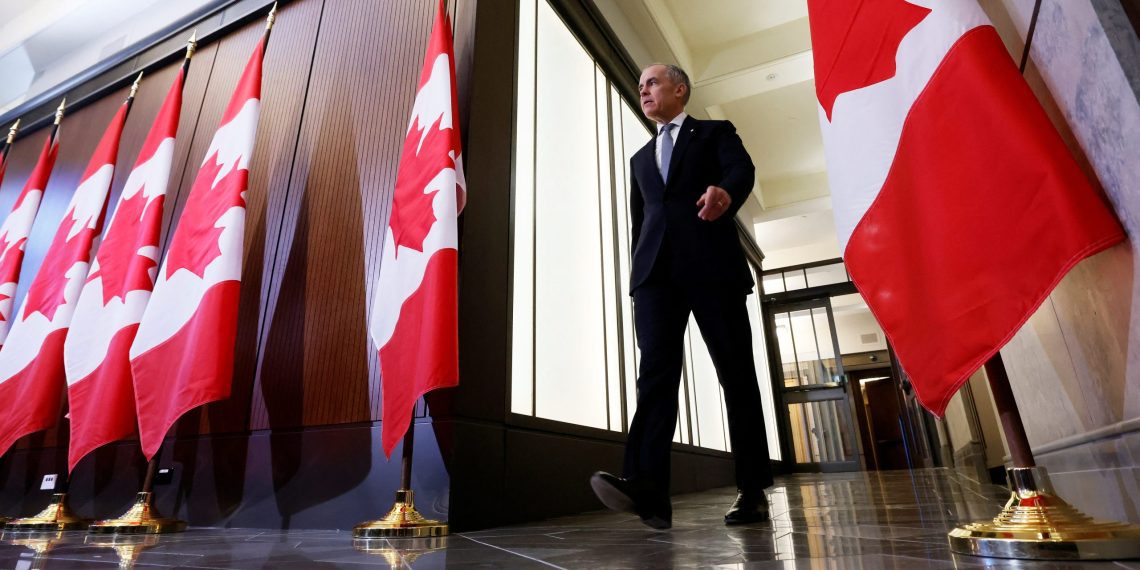Canada-U.S. Relations Hit Crisis Point as Auto Tariff Threat Looms
In a dramatic shift that could redefine North America’s economic landscape, Canadian Prime Minister Mark Carney has declared that the longstanding partnership with the United States, characterized by economic integration and military cooperation, is effectively over. This bold statement comes in the wake of U.S. President Donald Trump’s controversial decision to impose a 25 percent tariff on auto imports from Canada, the European Union, Japan, and South Korea.
Prime Minister Carney, responding to this economic bombshell, has emphasized the need for Canada to reimagine its economic strategy, ensuring the nation’s success in an increasingly volatile global market. “We must fundamentally reimagine our economy,” Carney asserted from Parliament Hill, highlighting the urgency of the situation.
The proposed tariffs, slated to take effect next week, have sent shockwaves through the auto industry, with dire predictions of shutdowns on both sides of the border. Flavio Volpe, president of the Automotive Parts Manufacturers Association of Canada, warned that the auto sector could grind to a halt within days if the tariffs proceed as planned.
In a strategic move, Carney returned to Ottawa to discuss the crisis with his Cabinet committee on Canada-U.S. relations. While the Canadian government has signaled its readiness to retaliate, Carney has remained tight-lipped about specific countermeasures, citing the complexity and breadth of the negotiations ahead.
Ontario Premier Doug Ford has been actively involved in discussions, expressing skepticism about assurances from U.S. Commerce Secretary Howard Lutnick that there would be no plant closures. Ford, echoing the cautious optimism of former U.S. President Ronald Reagan, emphasized the need for verification.
The economic standoff has prompted Canadian leaders to consider significant retaliatory tariffs, potentially amounting to C$155 billion on U.S. products. President Trump, known for his incendiary rhetoric, has threatened even larger tariffs should Canada collaborate with the European Union against U.S. interests, a threat Carney has dismissed by reaffirming Canada’s sovereignty and agency.
While direct communication between Carney and Trump has yet to occur, the Canadian leader has not ruled out the possibility of a phone dialogue, avoiding the potential pitfalls of an in-person meeting in Washington. Volpe, an influential voice in the auto industry, has advised patience, suggesting that the economic repercussions in the U.S. could ultimately foster change.
Lana Payne, president of Unifor, Canada’s largest private sector union, has urged the Canadian government to protect auto workers and sent a defiant message to Trump, emphasizing Canada’s market access as a critical leverage point.
Amidst the turmoil, Canadian premiers have rallied in solidarity with Carney. Manitoba’s Wab Kinew criticized Trump’s tactics, accusing him of sowing global uncertainty to secure advantageous deals. Meanwhile, Quebec Premier François Legault has called for an immediate renegotiation of the United States-Canada-Mexico Agreement, though he acknowledged the challenges posed by Trump’s current stance.
The stakes are high, with the U.S. having imported $214 billion worth of passenger cars in 2024 alone. As the deadline for the new duties approaches, mayors from Canada, Mexico, and the United States are convening in Washington to advocate for tariff relief and avert a crisis that threatens tens of thousands of jobs and could raise vehicle costs substantially.
In this tense geopolitical climate, the future of North American trade hangs in the balance, with leaders on both sides of the border navigating a precarious path forward.









